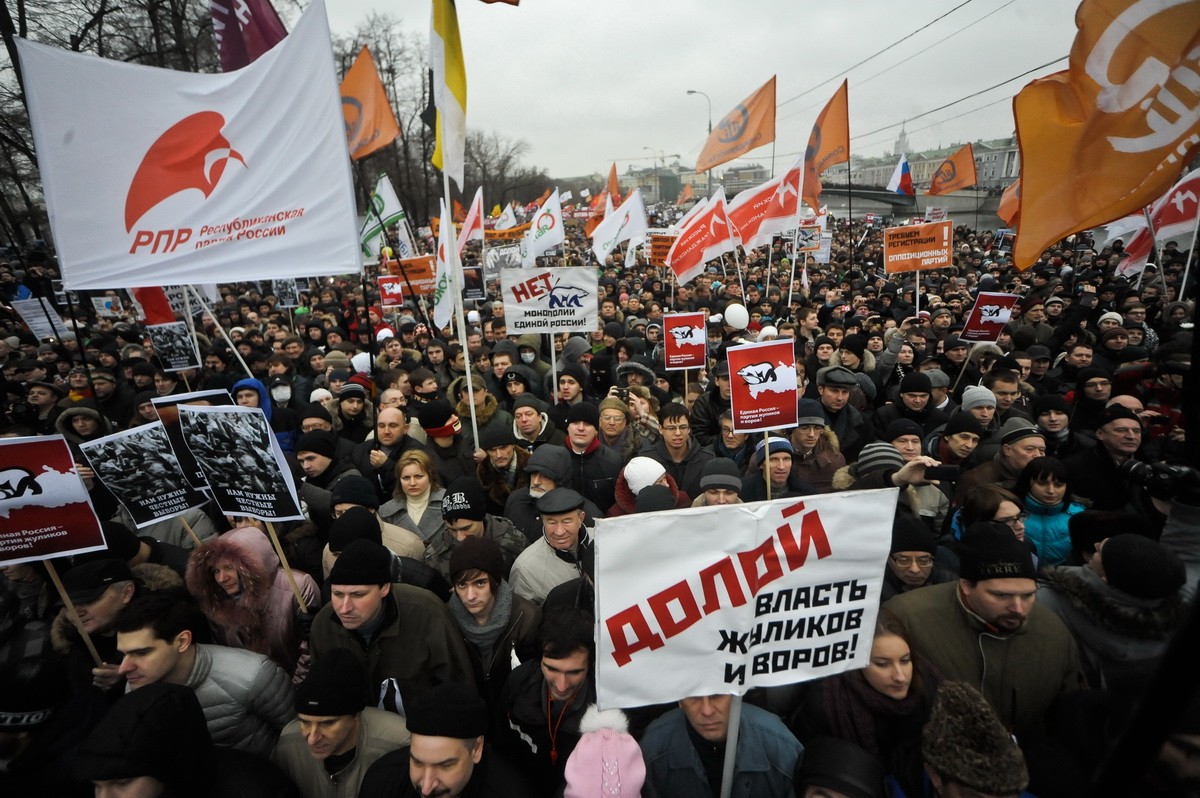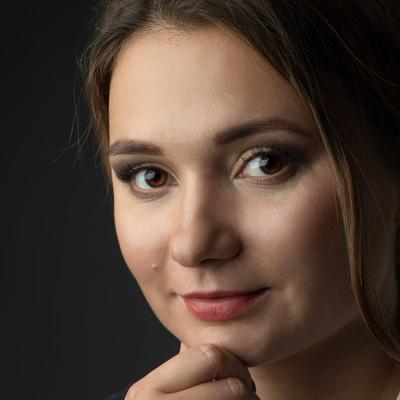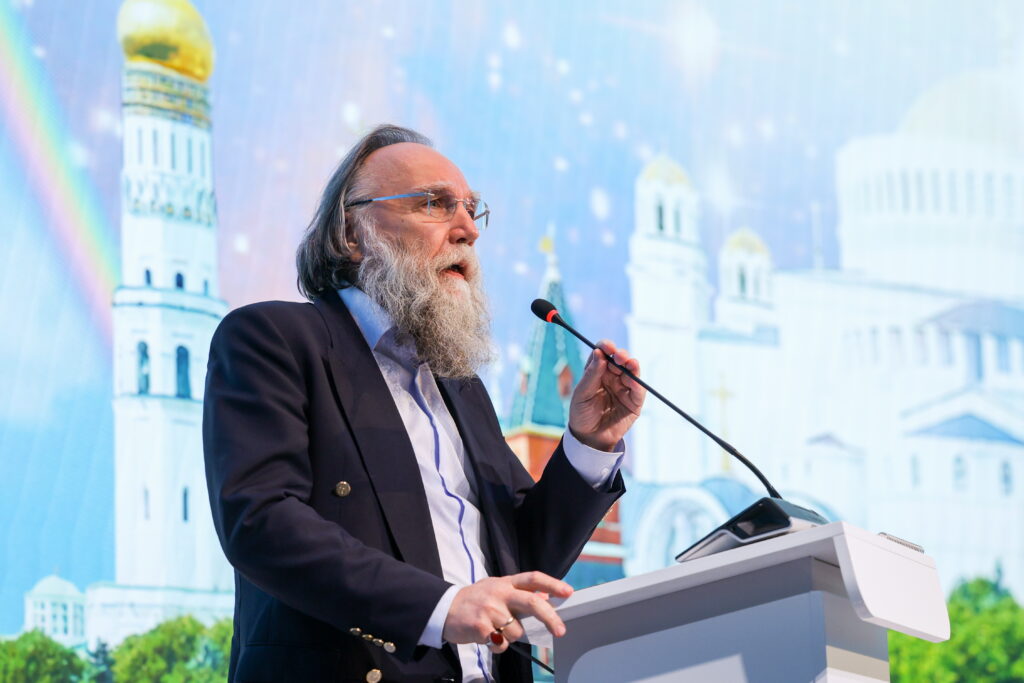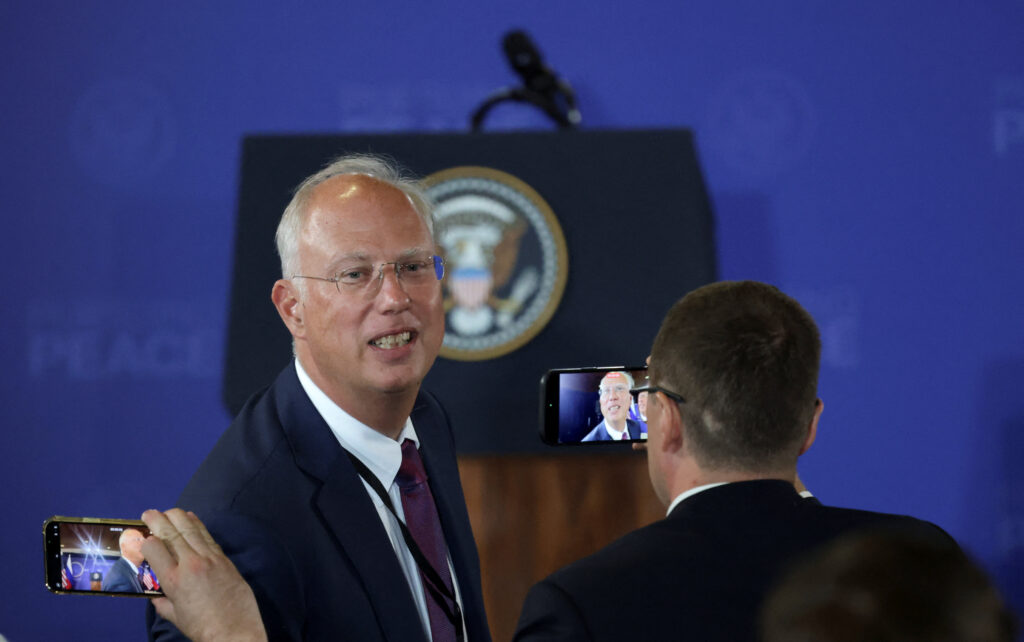Aggressive Kremlin propaganda has divided Russia’s active creative class into two groups: those who support Moscow’s policies, and those who are against them. Clearly, the former feel themselves much more at ease in Russia. They are in the regime’s good graces, and do not feel the burden of responsibility for the annexation of Crimea, the military operations in east Ukraine and in Syria, or for the impoverishment of their fellow citizens resulting from the Kremlin’s imperialist policies and economic short-sightedness. But life in Russia is no picnic for the journalists, experts, political scientists, and others who cannot, and do not, turn a blind eye to what is going on, to the lawlessness of the Kremlin’s actions against both Ukrainians and Russians. Not only do they feel the burden of collective responsibility for the behaviour of the criminal regime, but they must also live with the label of “Russophobes”, and an inability to publicly defend their stance in mainstream media.
Moreover, it is the broad sweep of Kremlin propaganda that has instigated the witch hunt for Kremlin agents, which is gaining momentum in the West. Whether intentionally or not, the same people who are perceived as US agents on the local Russian “market” are subsequently often the victims of this same witch hunt. Should this witch hunt continue to unroll in this hysterical vein, with people being indiscriminately blamed and discredited, those Russian citizens who oppose the Kremlin will be left facing the unenviable fate of being turned into pariahs by birthright. Naturally, the Kremlin stands to benefit from this situation.
To understand how Kremlin propaganda discredits its opponents and silences their voices, its two paradoxical intended consequences need to be examined: the misleading of the Russian public, and the misleading of the West.
The paradox of Russian “Russophobes”
Not only has Kremlin propaganda deliberately cut off the regime’s critics from a mass audience for a long time now, but it has also fomented a steady resentment of their liberal, pro-Western views. To this end, all those who disagree with Putin’s current imperial and authoritarian policy have been publicly accused of being foreign agents, engaging in subversive activity and attempting to undermine the national interests of the state. Western values have been cast in a non-traditional light, thus appearing harmful to Russians. As such, two thoughts have been firmly inculcated in the mass consciousness: that criticism of Putin amounts to national treason, and that the desire to return to a European foundation involves a complete rejection of the Russian way of life.
Such rhetoric can be heard in the speeches of the propaganda mouthpieces and guardians of the existing regime. Undoubtedly, the head of Chechnya, Ramzan Kadyrov, is one of the most notorious mouth pieces. He has openly stated that those opposed to Putin “should be treated as enemies of the people, as traitors”. He invokes external enemies – already a tradition in today’s Russia – underlining the idea that the Russian opposition “are playing a game invented by Western intelligence agencies, dancing to their tune, and unscrupulously trying to pass themselves off as people concerned about the future of our country”. In this regard, the stance of the radical Kadyrov, who openly threatens the opposition with reprisals, unfortunately does not seem that uncommon (in the case of Nemtsov’s murder, the trail of blood clearly leads to Chechnya). The “us or them” dichotomy has become increasingly popular following the Russian occupation of Crimea.
The government’s propagandists are resorting to several ploys in their attempts to legitimize their “fifth column” thesis.
To begin with, “Kremlin-phobia” – criticism of the Kremlin, but not Russian citizens – has been equated to “Russophobia” in public discourse. The same goes for love of country or the people, which has become synonymous with a love of the government. Such identification, instilled in the minds of Russians for years, has finally borne fruit, and now many absolutely reflexively relegate Putin’s critics to the category of “Russophobes”, irrespective of their nationality. Besides, the Kremlin’s mouthpieces emphasize that these are liberals and Russian “Occidentalists”, who are most inclined to “Russophobia” anyway. The article on “Russophobia” on the pro-Kremlin analogue of Wikipedia, Ruxpert – which positions itself as a “patriot’s handbook” – is a case in point. Speaking of the post-Soviet period, Ruxpert gives the following so-called fact-sheet: “Liberals have turned out to be the main adherents to the ideology of “Russophobia” and self-hatred, just as they were back in the days of the late Russian Empire. Contemporary Russophobic myths are liberal myths, whereas representatives of the liberal intelligentsia and non-systemic opposition have turned out to be the main advocates of Russophobic ideas in today’s Russia”. Thus we can see here the concocted chain of logic of “the liberal as Russophobe” that has been inculcated in the public consciousness, where “liberal” is a synonym for a critic of the regime rather than an adherent to liberal ideology.
Additionally, apart from accusing Putin’s opponents of “Russophobia”, Kremlin propaganda also tries by any means possible to undermine their Russianness. On this point, the telling label of “foreign agents” that NGOs with foreign funding have been given is noteworthy. To this end, the Kremlin skillfully avails itself of the opportunity to leverage the popular antisemitism flourishing in Russia. The policy of equating Jews with those who are dissatisfied with the regime and wish to potentially destabilize it, is clearly visible in the pro-Kremlin media. It is enough to recall the film “13 Friends of Junta”, shown on NTV in 2014, wherein the Jewish origin of the protagonist, who sympathizes with Ukraine and Maidan, was brought up as incriminating evidence. And then there’s the article by the “patriotic” journalist Ulyana Skoibeda in “Komsomolskaya Pravda”, in which she lamented the fact that the Nazis had not made lampshades from the ancestors of today’s liberals. There are a multitude of similar examples.
As a result, the message that reaches the domestic end user of Kremlin propaganda is that the opposition are cosmopolitans, Jews, or people working for other states who hate everything which is Russian and want to demolish the country. As silly as it may sound, this information policy seems to resonate with Russian society. According to the latest survey by the Levada-Center, 41% of Russians believe that the fight against “foreign agents” and “the fifth column” is fully justified. Consequently, any repressive measures enacted against this opposition will be met by approving silence from a large part of Russian society. Meanwhile, the majority of those who intuitively sense the absurdity and abnormality of this policy against Putin’s critics will choose to remain silent, so they do not find themselves on the list of “Russophobes, Western agents, the Jewish fifth column and traitors to the Motherland”.
The paradox of anti-Putin “Kremlin agents”
The thousands of Kremlin “trolls” who have flooded the internet cause confusion both on Russian and Western websites. Each publishes more than a hundred comments daily (former “trolls” assert that they had to write at least 135 posts a day). The main purpose of their efforts is evident – to create the illusion of overall support for Putin’s policy, to stifle alternative views, irritate other users and force them to retreat to “internal migration”. However, it is unlikely that the Kremlin truly believes that comments of dubious quality and content can force the Western public to reconsider their viewpoint – except perhaps for a marginal group of conspiracy theorists. Rather, it seems more likely that one of the numerous tasks of the Kremlin propaganda machine on the Western flank is to create an information buzz that will create suspicion of Russians and others who speak not only negatively about Russia (not the Kremlin!).
Indeed, the example of Twitter and other social media shows that the campaign against the disclosure of Kremlin trolls often takes the form of a witch hunt, while the terms “Kremlin troll” and “FSB double agent” have become universal insults. And on this digital front, new players have entered the arena – denunciators of “Kremlin agents “whose methods resemble those of the Kremlin trolls’ – a lack of evidence, emotional blackmail, insults, collective attacks, and harassment of a number of experts, journalists and institutions. The Intersection Project and the members of its editorial board became the victims of such an attack not long ago. Around that time, many Russian and Western experts in Russian affairs who openly criticize the Putin regime were also groundlessly accused of actually working for the Kremlin.
The question arises then: who is organizing this campaign to discredit Putin’s critics in the eyes of Western audiences? The most obvious answer that pops up is the Kremlin. Andreas Umland, who has also been attacked by “denunciators of Kremlin agents” named this practice as post-modern and characterized it as “trolling via ‘anti-trolling’”. In other words, “exposing” active measures as one of the active measures (this was the wording used to describe the measures taken by the KGB during the Cold War to affect public opinion in the West – author’s note).
It is difficult to disagree with this assessment, but there might potentially be another mastermind behind these “witch hunts” – hysterical Western conspiracy-lovers. Kremlin propaganda has forced them to see a potential Kremlin agent in every Russian or pro-Russian (not to be confused with pro-Kremlin!) expert, even when the facts prove otherwise. While this category of Internet user openly expresses their hatred for Putin and his propaganda, they are in fact playing right into the Kremlin’s hands by themselves casting aspersions on its opponents.
It should be noted that public exposure of individuals promoting the Kremlin’s interests is undoubtedly important and necessary. However, this should only be done with a cold eye and a steady hand, otherwise those labelled in Russia as “Russophobes” and “agents of the State” could incidentally become victims of the subsequent “revelations”. And although the phenomenon of Russian “Russophobes” is here to stay for as long as Putin’s regime holds power, the West continues to be more than capable of fighting the phenomenon of anti-Putin “Kremlin agents”…










